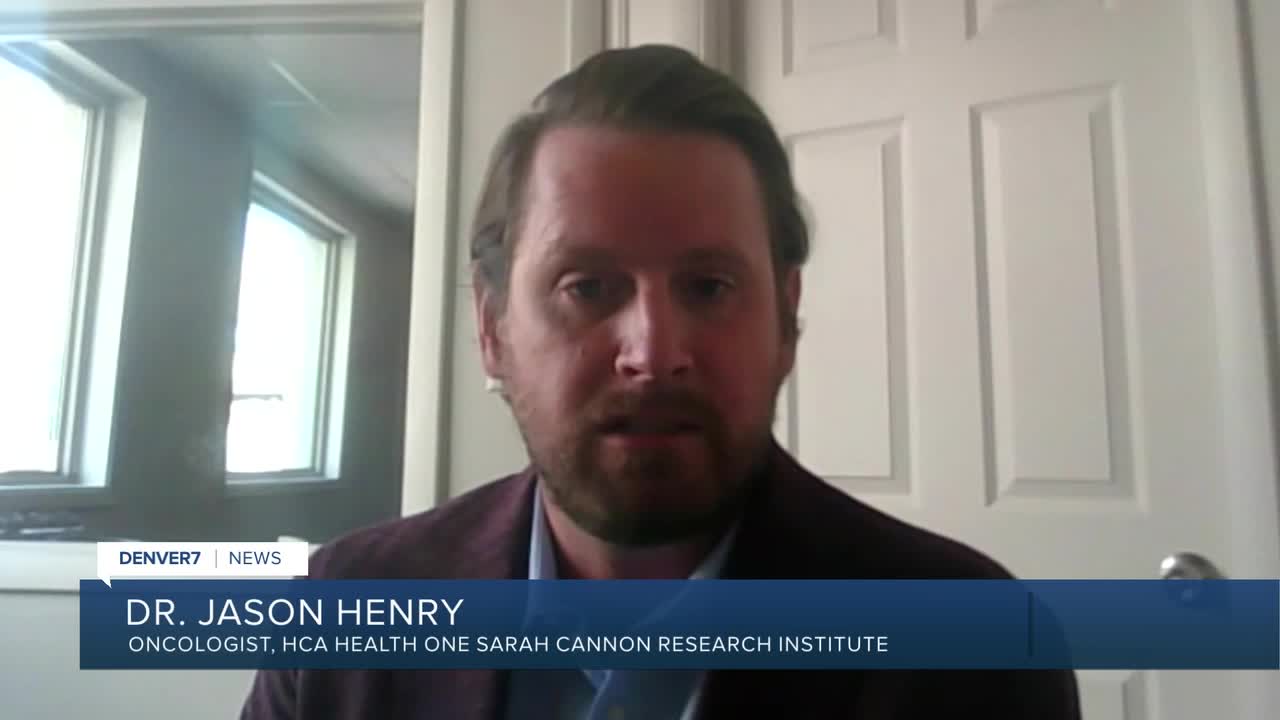DENVER — Early data for a new vaccine for pancreatic cancer is generating some hope among patients, researchers and doctors.
Denver7 asked Dr. Jason Henry, an oncologist at Sarah Cannon Research Institute with HCA HealthONE, about the vaccine in its early stages of development.
“This is one of the most exciting times in pancreatic cancer research in the last 100 years,” Dr. Henry said.
Dr. Henry said the vaccine is significant because it’s showing some promise for patients who have been through treatment but still have a high chance of the cancer coming back.
“They designed a vaccine that targeted the most prevalent condition in pancreatic cancer, administered it after surgery, and were able to elicit immune responses to keep the cancer from returning,” Dr. Henry said.
It’s important because even though pancreatic cancer is rare, it’s the third deadliest cancer in the U.S. This's because of how hard it is to detect the cancer and treat it.
“Pancreatic cancer doesn't usually manifest itself until it’s too late, and that's based on the location of the pancreas,” Dr. Henry said. “People don't usually feel it. There's not a good lab test to detect it, and yet it's still there.”
The location of the pancreas also makes it hard for medications to reach it and when they do, the cancer cells can be resistant to treatments.
Dr. Henry provided some additional context on the pancreatic cancer vaccine's early stages of research.
“There's only 20 patients with pancreatic cancer and study, it's not rare for us to see exciting data based on a limited patient population,” Dr. Henry said. “That being said, the patients who did particular well on this study, we were also able to demonstrate that the vaccine was doing what we designed it to do so it lends credibility when not only you see these very exciting and durable responses, but that on a biological level, the vaccine is actually doing what you designed it to do.”
It isn’t the first time vaccines are being tapped to prevent cancers.
Dr. Henry reminded patients there are also trials you can research for treatment, but it’s important to reach out to cancer researchers as soon as possible.






